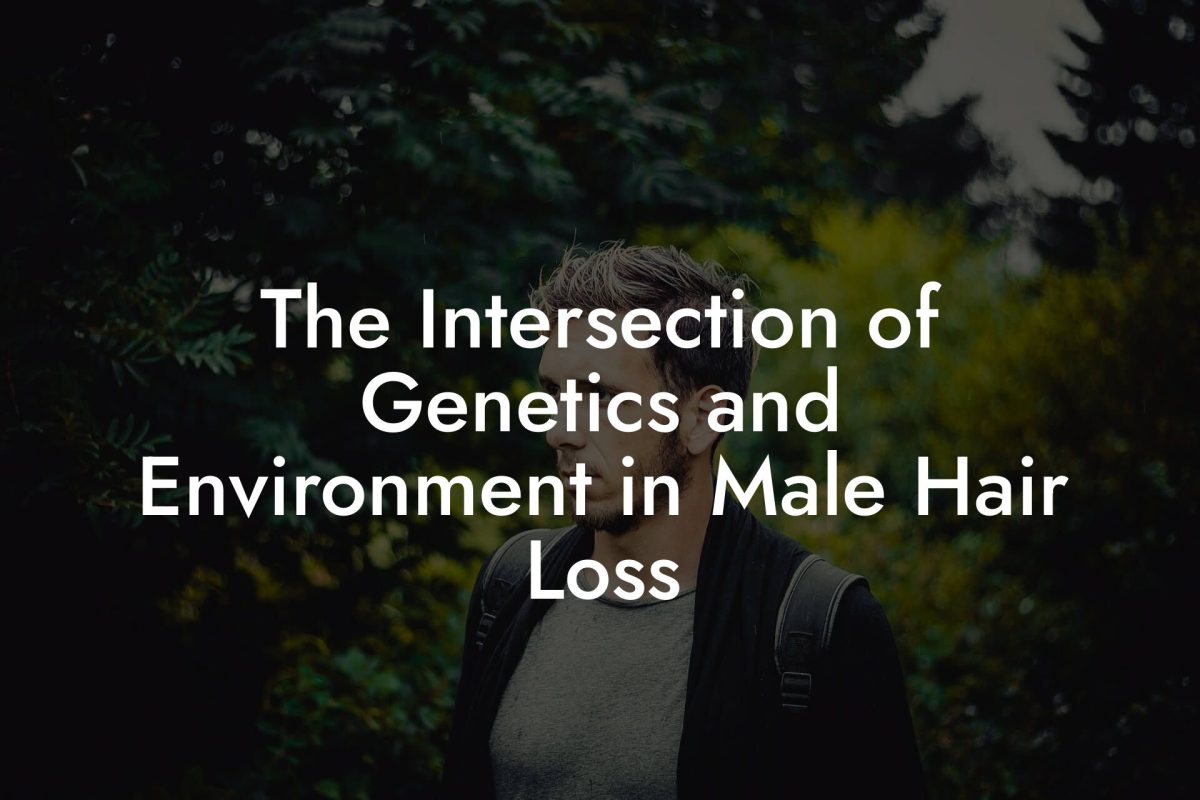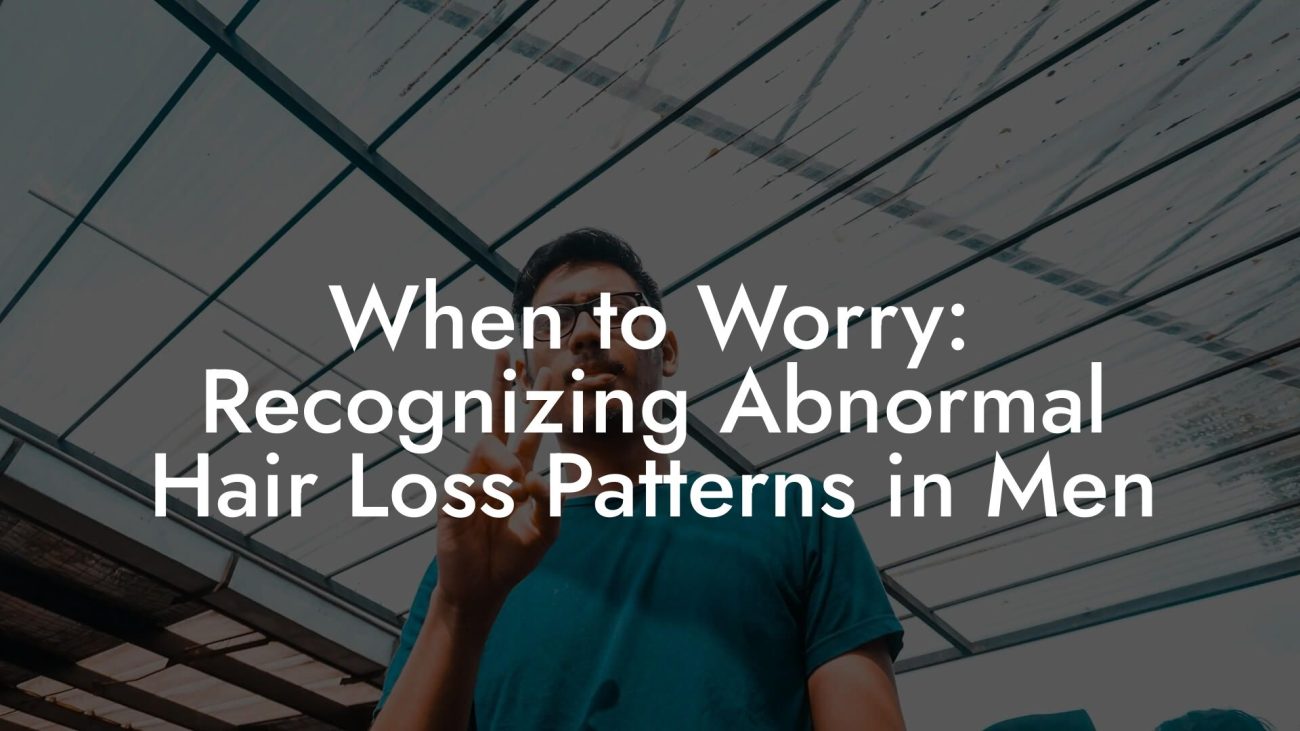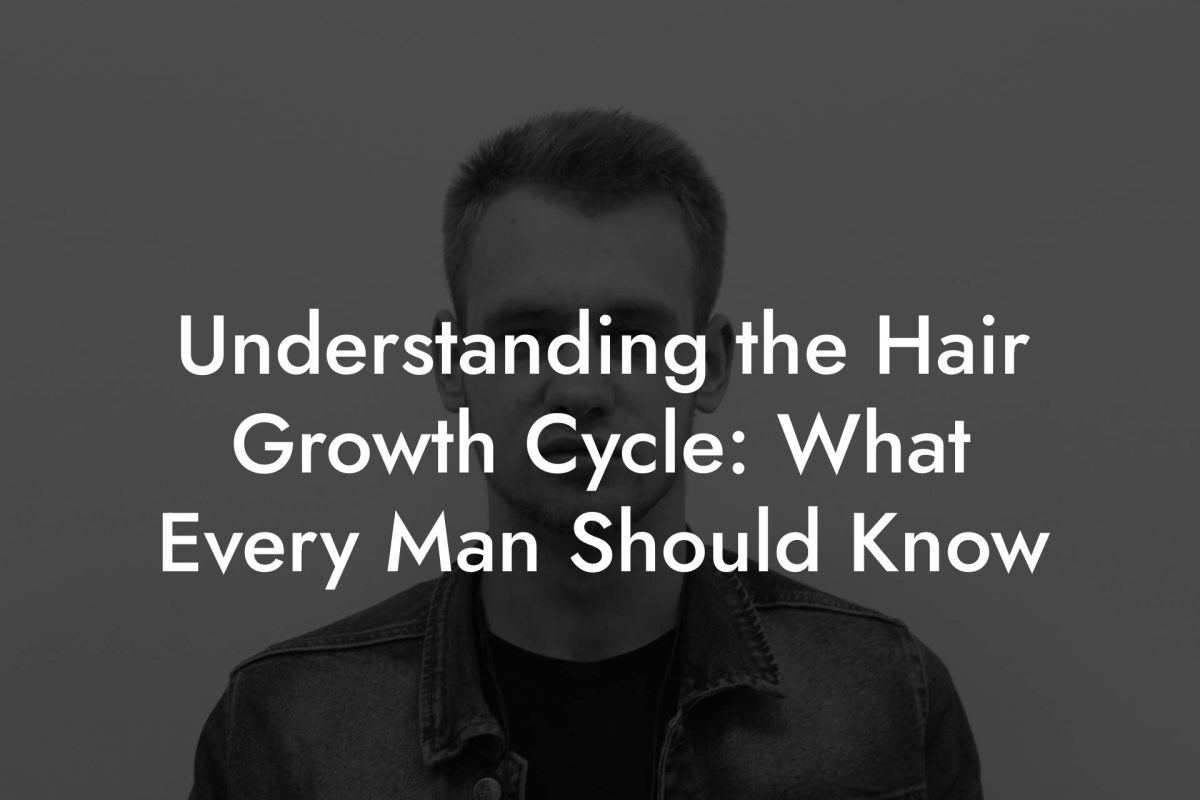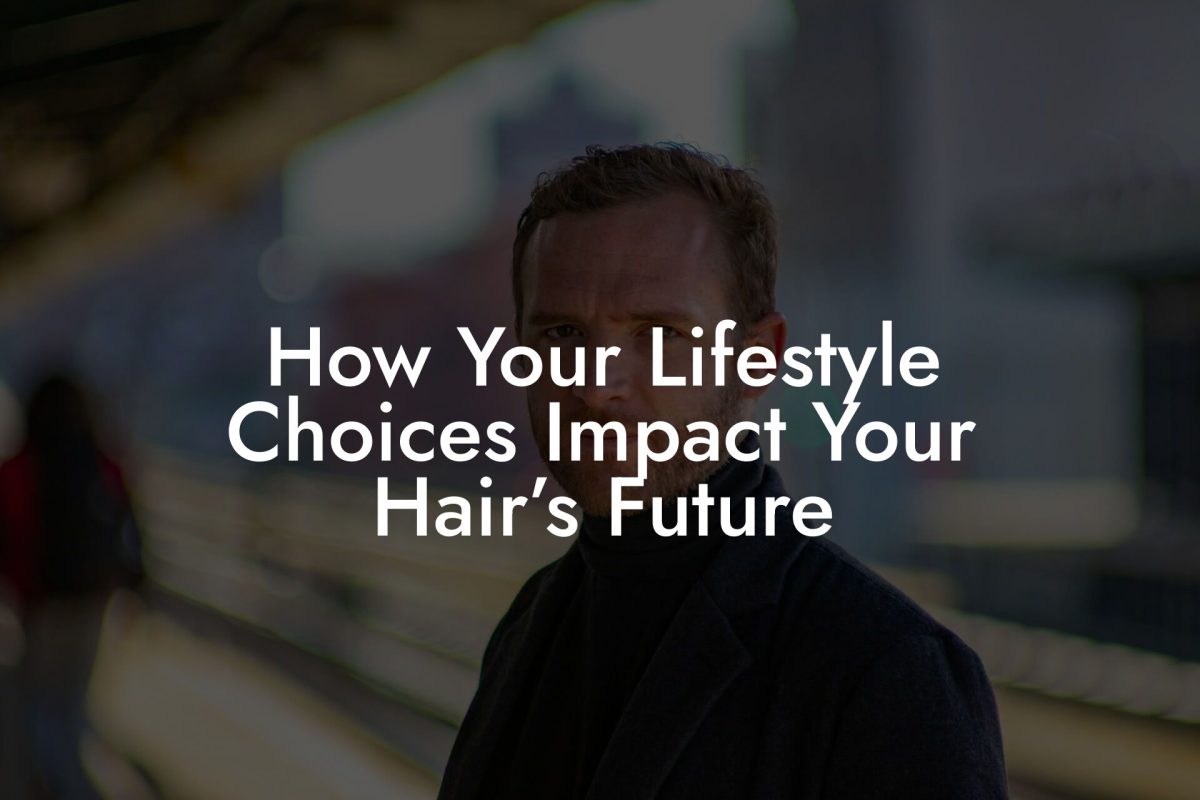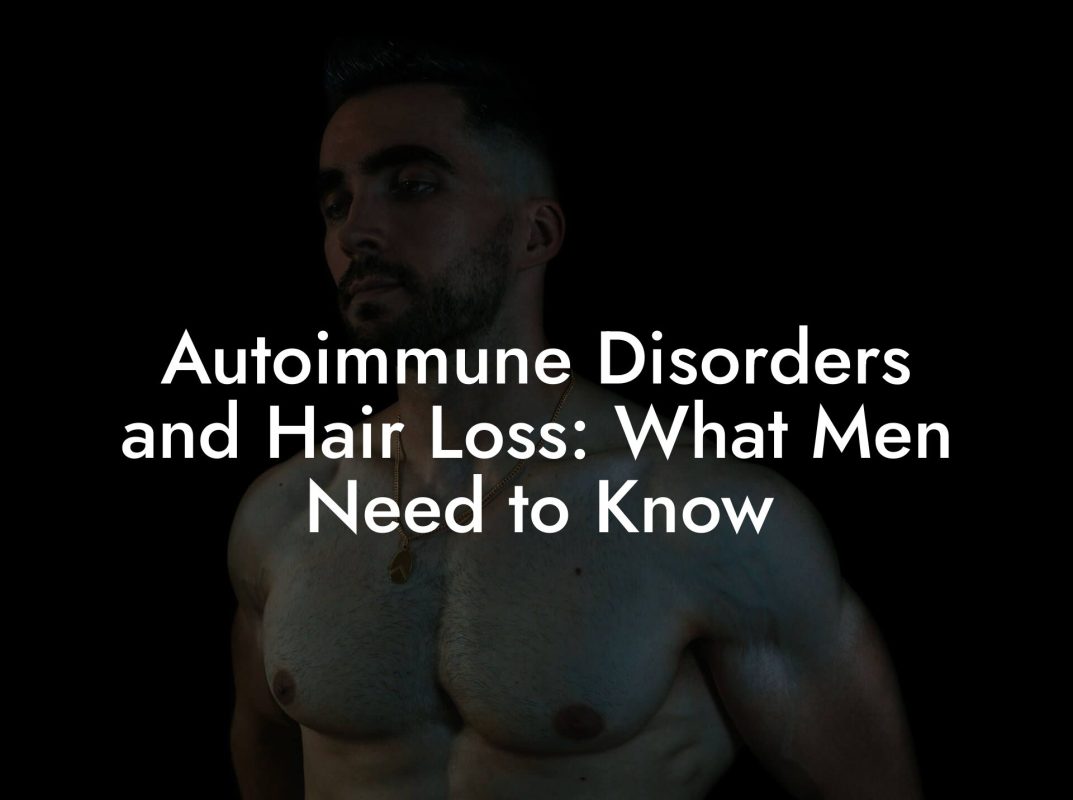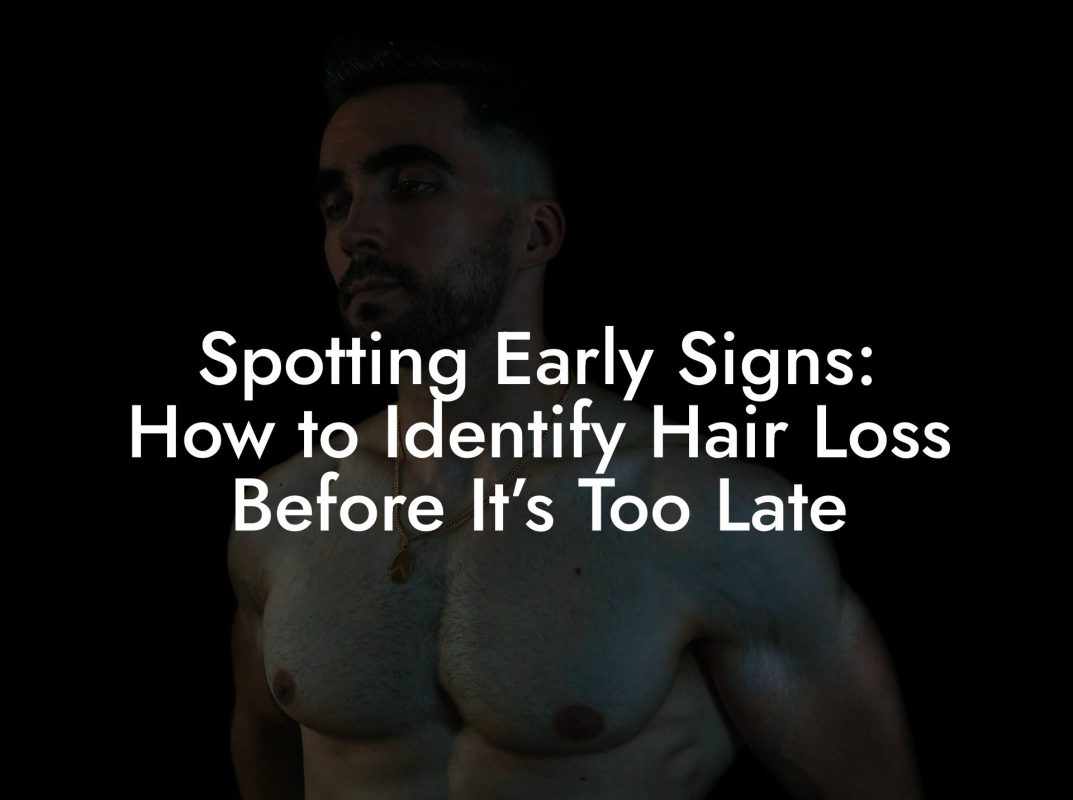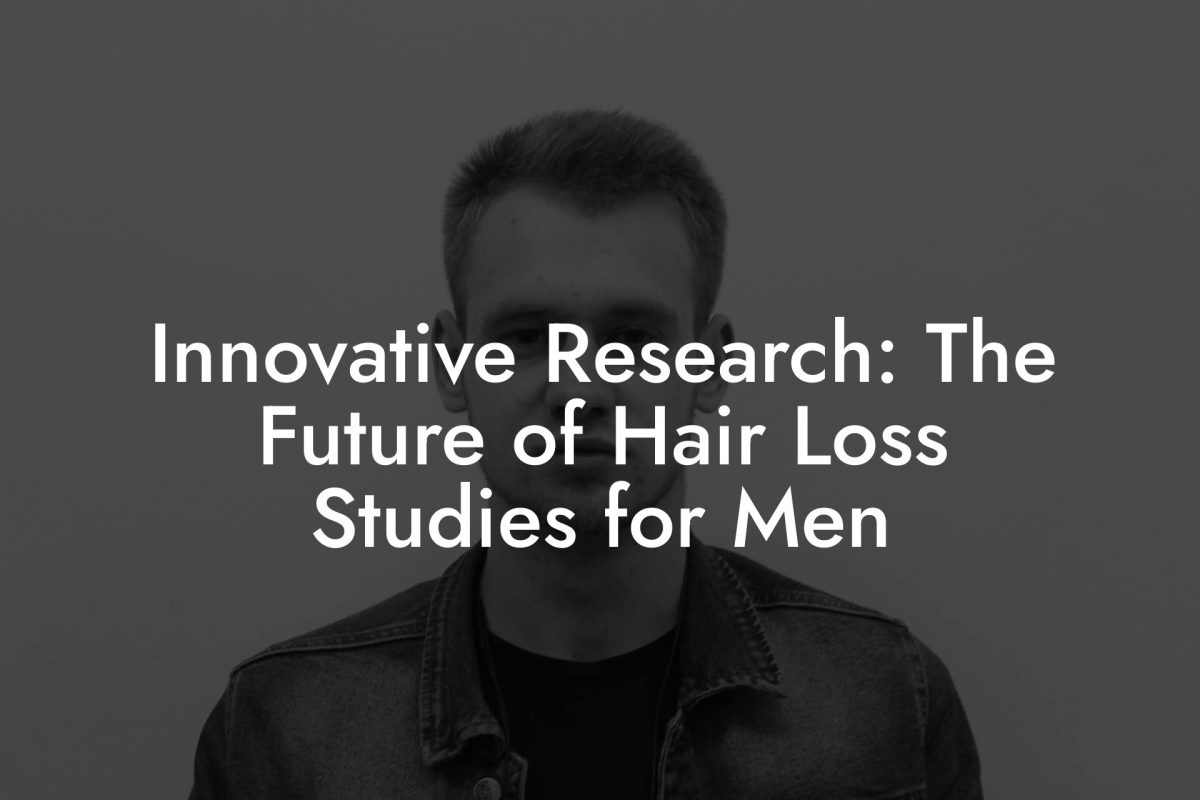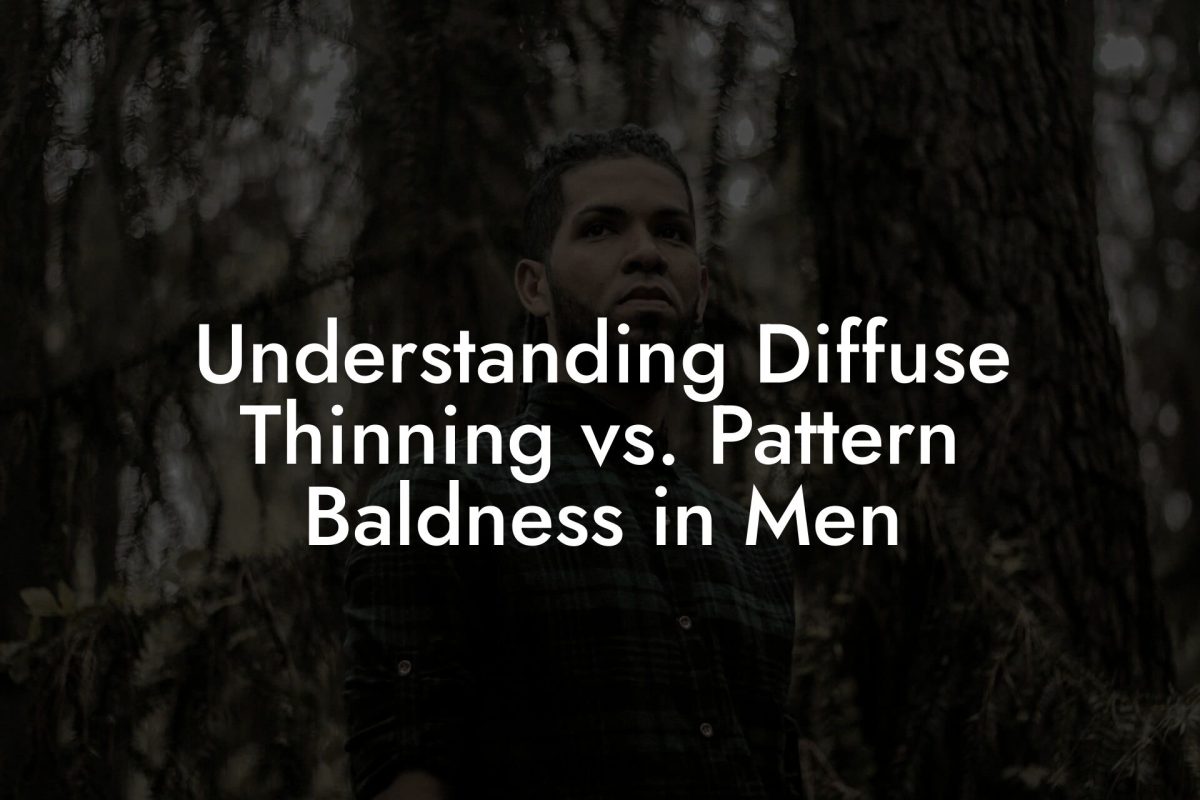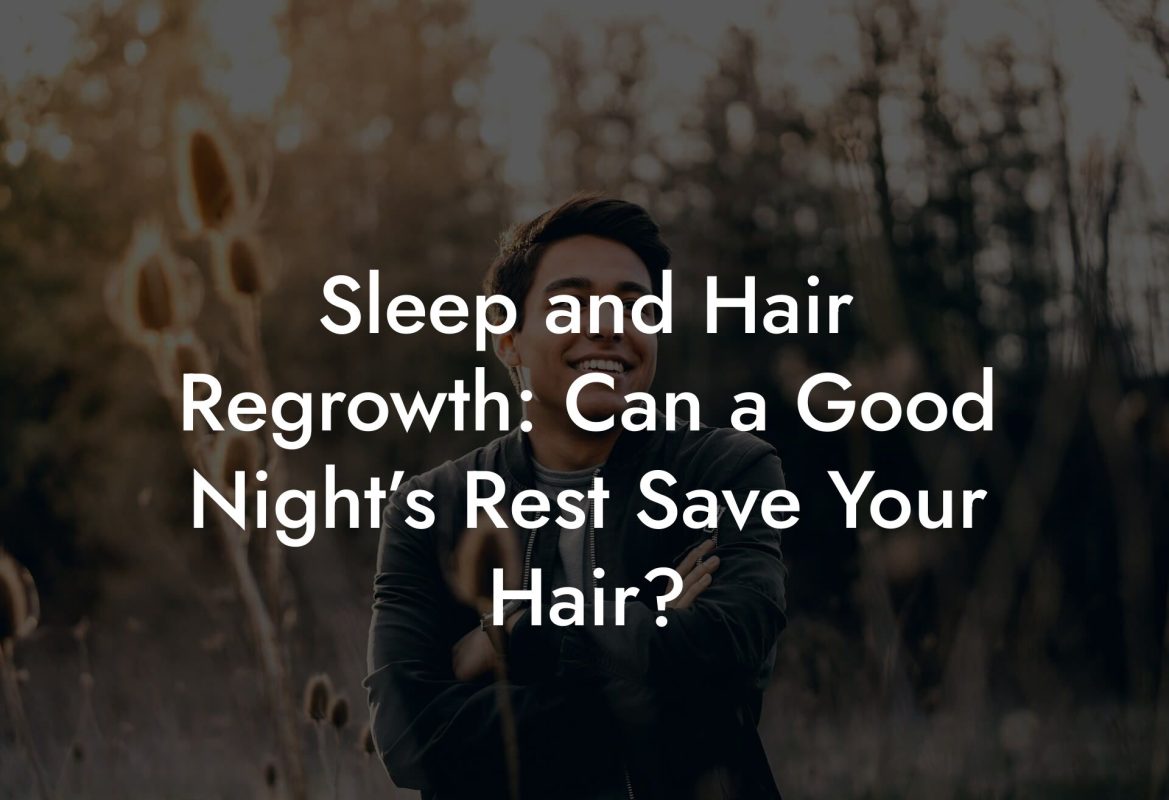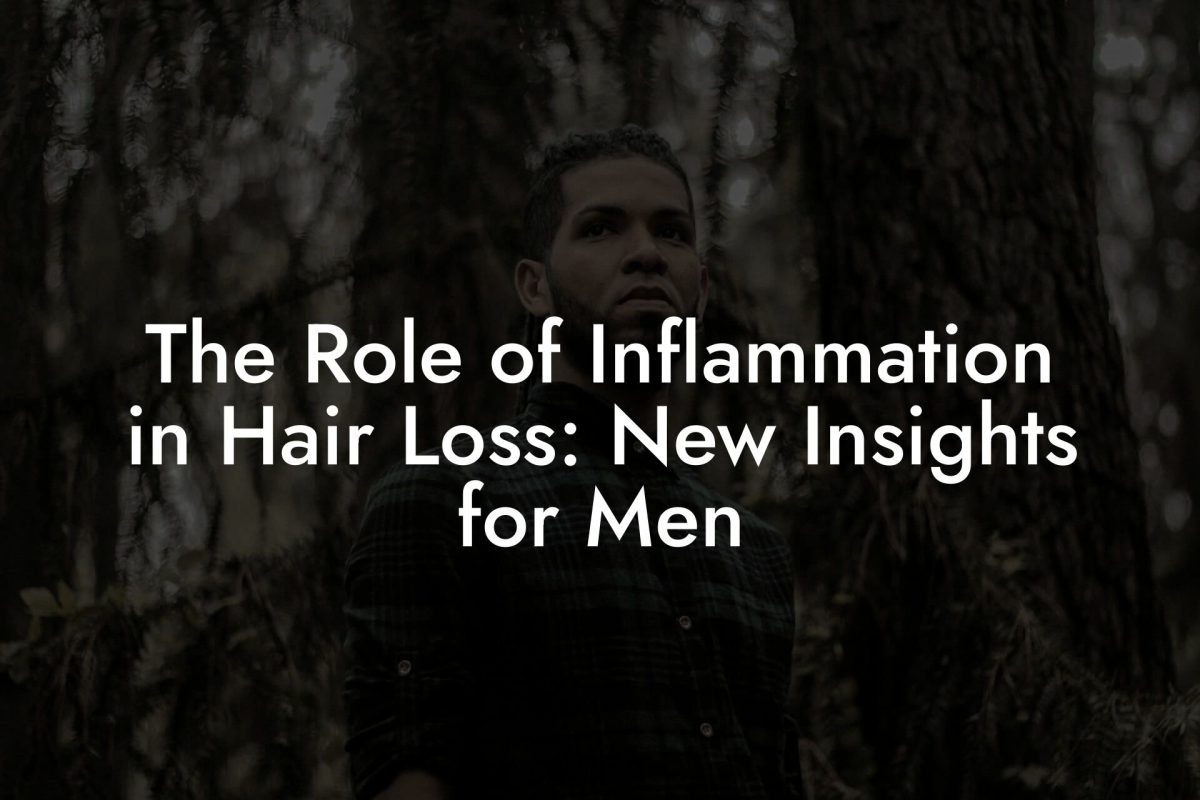Hair Loss Library
Genetics vs. Lifestyle: What’s Really Causing Your Hair Loss?
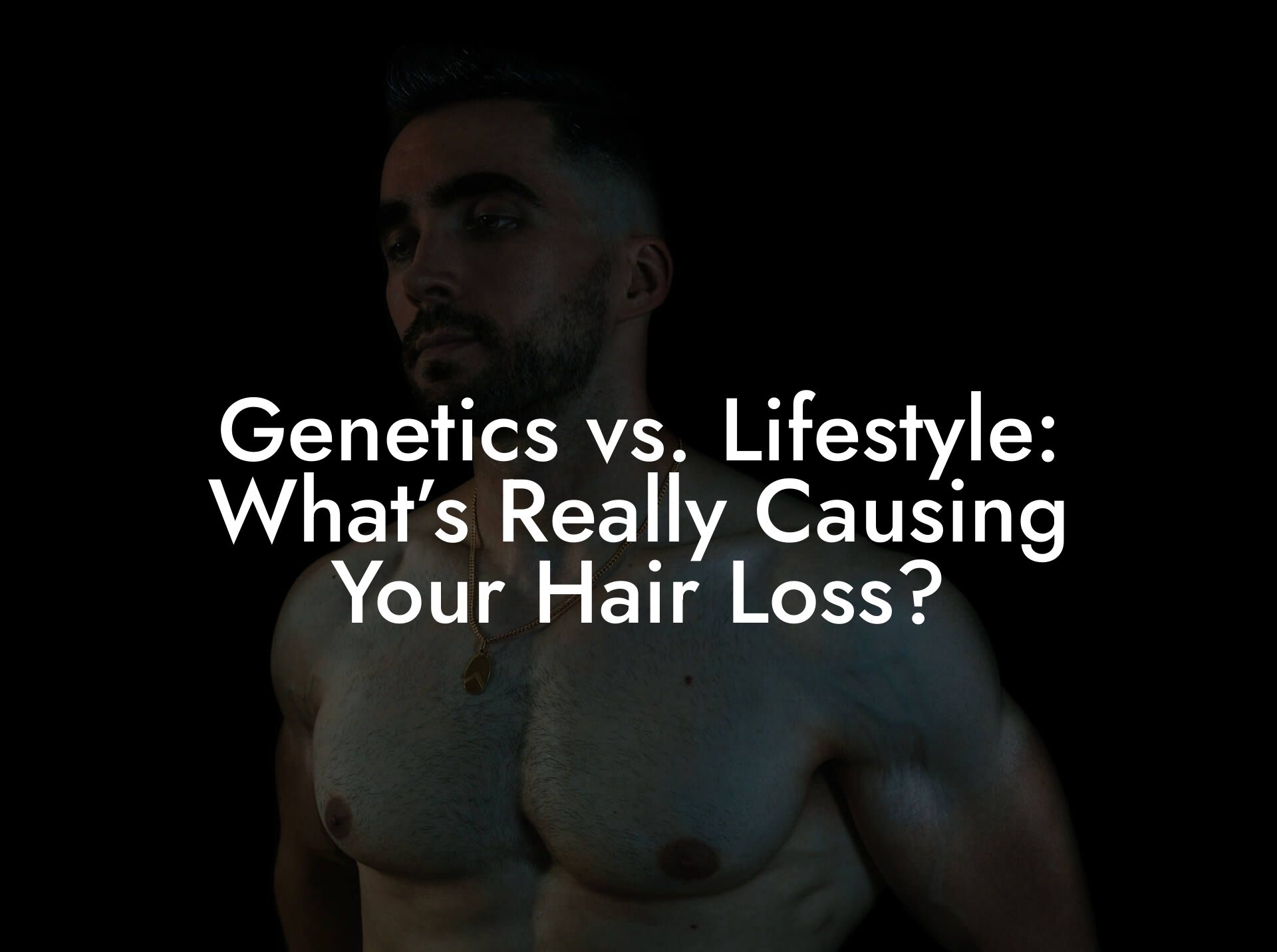
Ever caught yourself wondering if your thinning hair is staging a silent rebellion against your lifestyle choices, or if it's just following an ancient genetic script? In today's fast-paced world of hustle, health hacks, and high-speed scrolling, it's easy to feel overwhelmed by the conflicting advice on hair loss. Welcome to a deep dive into the age-old debate of Genetics vs. Lifestyle: What’s Really Causing Your Hair Loss? Grab a cup of joe, kick back, and join us on this journey through strands, scales, and scientific insights—without the awkward doctor visits or sky-high bills. Let’s untangle the mystery with a little humor, savvy science, and plenty of relatable real talk.
Understanding the Hair Loss Battlefield
Before we decide whether your follicles are falling due to fate or fast food, it's crucial to set the scene. Hair loss in men can be as embarrassing as accidentally sending a text to the wrong person, and it’s about time we patch up these myths with some solid facts. In this battle, the two primary contenders are your genetic makeup—those traits inherited from your ancestors—and your everyday lifestyle choices. Both can wield significant power over your mane, but which one deserves the blame for that receding hairline?
The answer isn’t always cut and dry. While some men are destined for a specific hair script thanks to their genes, others might be accelerating the process with stress, poor nutrition, or even environmental toxins. Fortunately, understanding the interplay between these forces gives you the power to potentially slow down, or even alter, your hair loss trajectory.
The Genetic Blueprint: Your Inherited Hair Destiny
Let’s kick things off with the heavyweight champion in the ring: genetics. For many men, the lines on their scalp are drawn long before they ever hit puberty. If your dad or even your granddad sported a receding hairline, odds are your follicles may have received similar instructions. And while we can’t rewrite our genetic code like we’re editing our social media bio, we can certainly shine some light on what genetics means for your hair.
The Role of Androgenetic Alopecia
Also known as male pattern baldness, androgenetic alopecia is the scientific term for the hereditary hair loss that most men face. This condition is closely linked to the hormone dihydrotestosterone (DHT), a byproduct of testosterone. DHT binds to receptors in the hair follicles, gradually shrinking them until they can no longer support robust hair growth. The result? Finer, shorter hairs that eventually vanish into thin air.
While your genetic predisposition might sound like a predetermined sentence to a bald future, remember that genes aren’t the only players. The environment in which your hair follicles live can either trigger or temper these genetic signals.
Family History: More Than Just a Conversation Starter
Ever heard your uncle joke about his “celebrity bald spot”? There's a sprinkle of truth behind that laugh. Family history offers a glimpse of the genetic lottery you might have drawn. If your relatives have experienced significant hair loss, it's a fair bet that you might face a similar challenge. However, it's important to understand that genetic risk is only one piece of the puzzle, and knowing your history can help you make proactive lifestyle adjustments.
Genetics Are Not Your Entire Fate
Here’s the silver lining: while you can’t change your DNA, you can change the way you nurture it. Lifestyle factors such as diet, stress management, and exercise may play a role in delaying or even reducing hair loss, giving your hair a fighting chance against genetic odds.
Lifestyle Factors: The Everyday Choices That Impact Hair Health
Now, let's dive into the other arena—your lifestyle. The way you live your day-to-day life might be handing your hair a slow ticket to an early exit if you’re not careful. But don’t fret: there’s a lot you can do to keep your mane in the game.
Diet: You Are What You Eat…and So Is Your Hair
Your diet is the ultimate behind-the-scenes crew for your hair follicles. Consuming a balanced diet rich in vitamins, minerals, and proteins ensures your hair gets the nutrients it craves. Essential fatty acids, antioxidants, and biotin are the rockstars of hair health. However, a diet high in processed foods, sugar, and saturated fats can lead to inflammation and hormonal imbalances that may hasten hair loss.
Think of your meals as a performance: the cleaner and more premium the ingredients, the better the show on your head will be. Incorporate lean proteins from fish and poultry, leafy greens, and fruits to create a nourishing menu that does wonders for your hair.
Stress: More Than Just a Bad Hair Day
Stress is like that unwelcome guest who overstays his welcome and leaves a trail of mayhem. Chronic stress can trigger hormonal imbalances that cause hair to fall out at alarming rates. When your body is under stress, it pumps out cortisol—a hormone that can disrupt the natural hair growth cycle. Suddenly, those once-lustrous locks start to seem less committed to their job.
Good news: managing stress through techniques like mindfulness meditation, regular exercise, and even creative outlets (hello, doodling during conference calls) can help mitigate stress-related hair loss. It's not about eliminating stress entirely, but about balancing it with healthy coping mechanisms.
Sleep: The Restoration Ritual for Your Scalp
If you think all-nighters are cool and that sleep is for the weak, think again. Sacrificing sleep does a number on your hormones and cell regeneration processes. Quality rest allows your body to repair and renew, and that includes replenishing cells in your scalp. Without enough sleep, your hair may not get the downtime it needs to regenerate, leaving you with a less-than-thriving mane.
Consider this: if you’d never pull an all-nighter before an important presentation, why risk your healthy hair by sacrificing sleep regularly? Aim for 7-9 hours of good-quality sleep each night, and your follicles will thank you with improved growth and strength.
Environmental Stress: Pollution, Toxins, and the Urban Jungle
Living in the urban jungle exposes you to environmental stressors that can have an impact on your hair. Pollution, UV radiation, and airborne toxins can accumulate on your scalp, leading to oxidative stress and damage. Over time, these factors might weaken your hair and contribute to premature shedding.
Washing your hair regularly with a gentle, sulfate-free shampoo and using products rich in antioxidants can act as a defense mechanism, cleansing and protecting your scalp from harmful environmental aggressors.
Debunking Hair Loss Myths: What’s Fact and What’s Fiction?
In the age of social media and viral trends, hair loss advice can be as misleading as a fake filter on a selfie. So, let’s take a moment to debunk some of the most popular myths surrounding hair loss:
Myth 1: Only Genetics Cause Hair Loss
While genetics plays a crucial role, lifestyle factors like diet, stress, and environmental toxins also hold significant sway over your hair’s health. It's not just nature versus nurture—it's a dynamic duet between the two.
Myth 2: Hair Loss Is Inevitable if It Runs in Your Family
Yes, a family history of hair loss increases your risk, but it doesn't seal your fate. By adopting a proactive lifestyle—think balanced nutrition, stress management, and proper hair care—you may delay or reduce hair loss even if your genetic cards aren’t in your favor.
Myth 3: Shampooing Frequently Causes Hair Loss
The idea that washing your hair too often will strip it of essential oils and cause hair loss is largely a myth. In reality, using the right products suited to your hair type, particularly those free of harsh chemicals, can maintain a healthy scalp environment and support hair growth.
Myth 4: Hot Water Is the Enemy of Hair
Too much of anything isn’t great, but a hot shower is not inherently harmful to your hair. The key is moderation—use lukewarm water when possible and finish with a cool rinse to help seal the hair cuticle, locking in moisture and shine.
Myth 5: Only Expensive Treatments Work
While high-end products and treatments have their place, many lifestyle changes such as a healthy diet, regular exercise, and adequate sleep can be just as effective in supporting hair health. Often, simple, consistent habits make a bigger difference over time.
Scientific Insights: The Interplay of Genes and Lifestyle on Hair Loss
At first glance, it might seem like genetics and lifestyle are two isolated factors in the equation of hair loss, but the truth is far more intertwined. Modern research shows that these elements often interact in complex ways, where lifestyle choices can either amplify or mitigate genetic predispositions.
For instance, oxidative stress caused by a poor diet or environmental toxins can accelerate the hair follicle’s miniaturization process in genetically predisposed individuals. Conversely, a nutrient-dense diet and a solid stress management routine can help protect hair follicles from the harmful effects of DHT—a hormone already primed to trigger hair loss in some men.
The Role of Inflammation
Inflammation might sound like a medical buzzword, but when it comes to hair loss, it’s a critical factor. Chronic inflammation—often resulting from poor dietary choices, repeated exposure to pollutants, or an overly stressful lifestyle—can exacerbate hair loss by creating an inhospitable environment for hair follicles. Inflammatory markers have been found to be elevated in individuals experiencing androgenetic alopecia, suggesting that managing inflammation effectively is key to preserving hair health.
Telogen Effluvium: When Lifestyle Takes a Temporary Toll
Beyond genetic factors, there’s another form of hair loss that can hit men unexpectedly: telogen effluvium. This condition is typically triggered by significant stress, major life changes, hormonal shifts, or nutritional deficiencies. Although usually temporary, telogen effluvium can be a real confidence killer if left unchecked. The good news is that once you address the root cause—be it through stress reduction techniques, dietary improvements, or medical intervention—hair growth often returns to normal.
Understanding these scientific insights not only demystifies the process but empowers you to take actionable steps. Knowledge is power—and in this case, it’s also your best defense in the fight against hair loss.
Take Control: Lifestyle Tweaks for Better Hair Health
If genetics is the hand you were dealt, then your lifestyle is definitely the play you make with it. The silver lining here is that while you might not have control over your DNA, you have plenty of power over the habits that influence your hair. Here are some game-changing lifestyle tweaks to keep your hair as vibrant as your personality:
Optimize Your Nutrition
Adopt a balanced diet that’s rich in vitamins like A, C, D, and E, as well as minerals like zinc and iron. Foods like spinach, sweet potatoes, berries, nuts, and lean proteins act as nourishment for your hair follicles. Consider incorporating superfoods and supplements like biotin and omega-3 fatty acids into your regimen to give your hair the extra boost it needs.
Stress Less, Smile More
It’s no secret that stress can wreak havoc on your body—even your hair isn’t spared. Incorporate daily mindfulness practices, breathing exercises, or even a short walk outdoors to keep stress levels in check. A laid-back mind fosters an environment where hair follicles can flourish. And hey, if you need a break from the chaos of social media debates or work emails, step away, breathe, and let nature do its thing.
Embrace a Consistent Hair Care Routine
The products you choose and how you care for your hair can have a big impact on its longevity. Opt for shampoos and conditioners that are specifically formulated for thinning hair. Look for products enriched with natural extracts, antioxidants, and proteins that support hair strength. And remember to be gentle—over-washing or aggressive towel-drying can exacerbate hair damage. Treat your hair like the crown it is, even on those lazy Sunday mornings.
Stay Active
Physical activity not only improves overall health but also boosts circulation, delivering essential nutrients to your scalp. Regular exercise helps keep your hormone levels balanced, reducing the chances of stress-induced hair loss. Whether it's a brisk walk in the park or a high-intensity workout session, make physical activity a non-negotiable part of your routine.
Know Your Products
Before you invest in the latest trendy hair product, do a little homework. Read ingredient lists, check reviews, and, when possible, consult with experts in hair health. Sometimes, the best solutions are simpler than fancy gimmicks—stick to products that have a proven track record of nourishing and protecting your hair.
Ultimately, the goal is to create a personalized routine that fits seamlessly into your life. After all, a sustainable routine is the one you’ll stick to, no matter how many life updates you go through.
Real Stories: Men Who Took Charge of Their Hair Health
Sometimes, the best inspiration comes from real-life success stories. Here are a few tales from men who turned the tide on hair loss by combining sleek genetic insight with smart lifestyle choices:
The Office Maverick Who Reinvented His Look
Jake, a 32-year-old marketing manager, always considered his thinning hair a sign of wisdom—until he realized it was affecting his confidence. After learning about the importance of nutrition and stress management, Jake revamped his diet, started meditating, and adopted a fitness regime. Six months later, friends and colleagues noticed not just a thicker hairline, but an all-around boost in his energy and outlook. Jake’s story is proof that a few lifestyle changes can transform both your hair and your whole vibe.
The Gamer Who Unplugged to Reclaim His Mane
Meet Ryan, a self-proclaimed gaming aficionado whose marathon sessions inadvertently spiked his stress levels and disrupted his sleep schedule. Realizing that his habits were taking a toll on his beloved locks, he decided to set boundaries—turning off screens an hour before sleep, incorporating short bursts of exercise during game breaks, and upgrading his diet. Gradually, Ryan found himself not only performing better at work and in games but also regaining some of his lost hair. Ryan’s journey highlights that even small lifestyle tweaks can have a big impact on hair health.
The Entrepreneur Who Invested in Self-Care
Alex, a driven entrepreneur in his late 20s, always believed there was no time for self-care. After noticing his hair thinning along with mounting stress and long hours, Alex decided to incorporate stress-relief activities such as yoga and nature walks into his busy schedule. He also began taking hair health supplements and refined his dietary choices. The results? A noticeable slowdown in hair loss and an energized mind ready for the next big idea. Alex’s experience is a testament to the power of investing in yourself, one healthy habit at a time.
These stories remind us that while genetics might set the stage, your daily choices write the script. Empower yourself with the knowledge and lifestyle habits that support not just a fuller head of hair, but a healthier, more vibrant life.
Creating Your Personal Hair Health Game Plan
No two hair loss journeys are identical, which is why creating a personalized game plan is essential. Think of it as crafting the ultimate strategy for your hair—a road map that blends your genetic predispositions with your lifestyle choices to yield the best possible outcome.
Step 1: Conduct a Self-Assessment
Start by evaluating your overall health, diet, stress levels, sleep quality, and current hair care routine. Take note of your family history and any noticeable changes in your hair texture or density over time. This honest audit sets the baseline for your personalized plan.
Step 2: Define Your Goals
What do you ultimately want to achieve? Are you looking to slow down the progression of hair loss, or do you want to improve the overall health and appearance of your hair? Having clear, realistic goals ensures that every step you take is aligned with your desired outcome.
Step 3: Choose the Right Tools and Treatments
Based on your assessment and goals, select the treatments and lifestyle adjustments that can make the most impact. This might include switching to a nutrient-rich diet, incorporating stress management techniques, tweaking your hair care products, or even consulting with a specialist who can offer tailored advice.
Step 4: Establish a Sustainable Routine
Consistency is the secret sauce. Implement your new habits in a way that feels natural and sustainable. Mark your calendar for regular exercise, set reminders to take supplements, and schedule time for self-care practices. The more consistent you are, the better your hair—and your overall health—will respond.
Step 5: Monitor and Adjust
Your hair health journey is dynamic. Keep a journal or use an app to track your progress, noting any changes in your hair’s density or overall appearance. Stay flexible and be ready to adjust your plan as new insights or results emerge. Regular check-ins with a hair health specialist can provide valuable guidance along the way.
Remember, the goal isn’t to achieve overnight perfection, but to build a foundation of healthy habits that stand the test of time—and genetics.
Resources and Community Support: Your Next Steps
Navigating the world of hair loss can feel like decoding an ancient riddle, but you’re not alone in this journey. There’s an entire community of men who are exploring solutions, sharing success stories, and offering support. Whether you’re looking for expert advice, product recommendations, or just a forum to vent about a bad hair day, there are plenty of resources out there to help you take control of your hair destiny.
Consider joining online communities or local groups where members discuss the latest research, share tips on lifestyle changes, and review new hair care products. Podcasts, YouTube channels, and blogs dedicated to men’s health and hair care can also be a trove of information. When in doubt, connecting with specialists who understand your needs can provide tailored guidance that bridges the gap between genetics and lifestyle.
Remember, taking the first step toward proactive hair care is a victory in itself. Empower yourself with knowledge and support from likeminded individuals who are just as invested in turning the tide against hair loss.
Frequently Asked Questions About Hair Loss
Below are some of the most common questions men have about hair loss, focusing on the roles of genetics and lifestyle factors. Explore these insights to gain a better understanding of what might be happening with your hair—and what you can do about it.
1. Is my hair loss solely determined by genetics?
While your genetic makeup plays a significant role in predisposition to hair loss, lifestyle choices such as diet, stress management, and environmental exposures can also influence the rate and extent of hair thinning.
2. Can improving my diet really help slow down hair loss?
Absolutely. A balanced diet rich in vitamins, minerals, and healthy fats provides the essential nutrients that can support hair follicle health and potentially slow down hair loss.
3. What stress-reduction techniques are most effective for hair health?
Practices like mindfulness meditation, regular physical activity, and proper sleep have been shown to reduce stress levels, which in turn can help mitigate stress-related hair loss.
4. How does environment and pollution affect my hair?
Excessive exposure to pollutants, UV rays, and toxins can lead to oxidative stress on your scalp, damaging hair follicles. Protective measures like using antioxidant-rich hair products and washing your hair regularly can help combat these effects.
5. Are there specific hair care routines recommended for men experiencing hair loss?
Yes. Using gentle, sulfate-free shampoos, avoiding excessive heat, and incorporating hair care products formulated for hair thinning can support a healthier scalp and improve hair strength.
6. What role does sleep play in maintaining healthy hair?
Sleep is critical for overall cellular repair, including the regeneration of hair follicles. Aim for 7-9 hours of quality sleep each night to support optimal hair health.
7. Can lifestyle changes really counteract the effects of a genetic predisposition to hair loss?
While you can’t change your genes, adopting healthy lifestyle habits—such as a balanced diet, stress management, and proper hair care—can mitigate some of the adverse effects and help preserve your hair.
8. How soon can I expect to see results after changing my lifestyle?
Hair growth is a gradual process. Most men begin to notice improvements in hair density and overall health after several months of consistent lifestyle changes.
9. Are over-the-counter hair products effective?
Many over-the-counter products can support hair health when used as part of a comprehensive plan that includes healthy lifestyle habits. Look for products that emphasize natural ingredients and have positive reviews from users with similar concerns.
10. Should I consult a specialist if my hair loss worsens?
If you experience rapid or severe hair loss, it’s a good idea to consult a healthcare professional or hair loss specialist who can provide a personalized assessment and recommend appropriate treatments.
Your Journey to Confident, Resilient Hair Health
The fight against hair loss isn’t just about clinging to the past—it’s about embracing actionable insights and making proactive choices. Think of it as leveling up in a game where every healthy habit and every informed decision strengthens your position on the scalp stage. Whether your hair loss stems primarily from your genes or if lifestyle factors are accelerating the process, the power to make a difference is in your hands.
By understanding the science behind hair loss and making sustainable lifestyle adjustments, you’re taking charge of your hair’s future. From optimizing your diet and managing stress to upgrading your hair care routine, every positive change is a victory against the factors that threaten your confidence. And remember, the journey to strong, resilient hair is as unique as your fingerprint. Personalize your approach, monitor your progress, and don’t be afraid to experiment with new strategies.
We get it—balding might feel like a relentless opponent, but armed with knowledge and supported by our vibrant community, you can rewrite the narrative. Embrace the challenge, celebrate every small win, and remember that every step you take is a stride toward a healthier, more confident version of yourself.
Your journey is not just about stopping hair loss; it’s about evolving your lifestyle to empower every aspect of your being. So go ahead, dive in, experiment with a new smoothie recipe, try out that mindfulness app, or simply enjoy a better night’s sleep. The keys to a robust mane lie in the power of your choices—because at the end of the day, you deserve to feel as unstoppable as your ambition.
If you loved this article... Dive deeper into the world of mens hair loss with our most popular sections. If there is anything you think is missing or anything you would love for us to write about, just give us a shout.
Why Am I Losing Hair? Unpacking the Science Behind Men’s Hair Loss
The Ultimate Guide to Male Pattern Baldness: Causes and Clues
Hormones & Hair: How Testosterone Impacts Hair Loss in Men
Genetics vs. Lifestyle: What’s Really Causing Your Hair Loss?
Stress and Strands: Exploring the Link Between Anxiety and Hair Loss
Decoding Androgenetic Alopecia: What Every Man Needs to Know
How Aging Affects Your Hair: Understanding the Natural Process
The Role of Diet in Hair Health: Nutrients That Prevent Hair Loss
Environmental Factors: How Pollution and Toxins Trigger Hair Loss
Medical Conditions and Hair Loss: What’s Normal and What’s Not?
The Impact of Medications on Men’s Hair: What You Should Ask Your Doctor
Unraveling Scalp Health: Signs Your Scalp Needs Extra Care
Hair Loss Myths Busted: Separating Fact from Fiction
The Role of Inflammation in Hair Loss: New Insights for Men
Sleep and Hair Regrowth: Can a Good Night’s Rest Save Your Hair?
How Smoking and Alcohol Affect Men’s Hair: A Deep Dive
Understanding Diffuse Thinning vs. Pattern Baldness in Men
Innovative Research: The Future of Hair Loss Studies for Men
Spotting Early Signs: How to Identify Hair Loss Before It’s Too Late
Autoimmune Disorders and Hair Loss: What Men Need to Know
The Science Behind Hair Follicle Miniaturization Explained
How Your Lifestyle Choices Impact Your Hair’s Future
Understanding the Hair Growth Cycle: What Every Man Should Know
When to Worry: Recognizing Abnormal Hair Loss Patterns in Men
The Intersection of Genetics and Environment in Male Hair Loss





